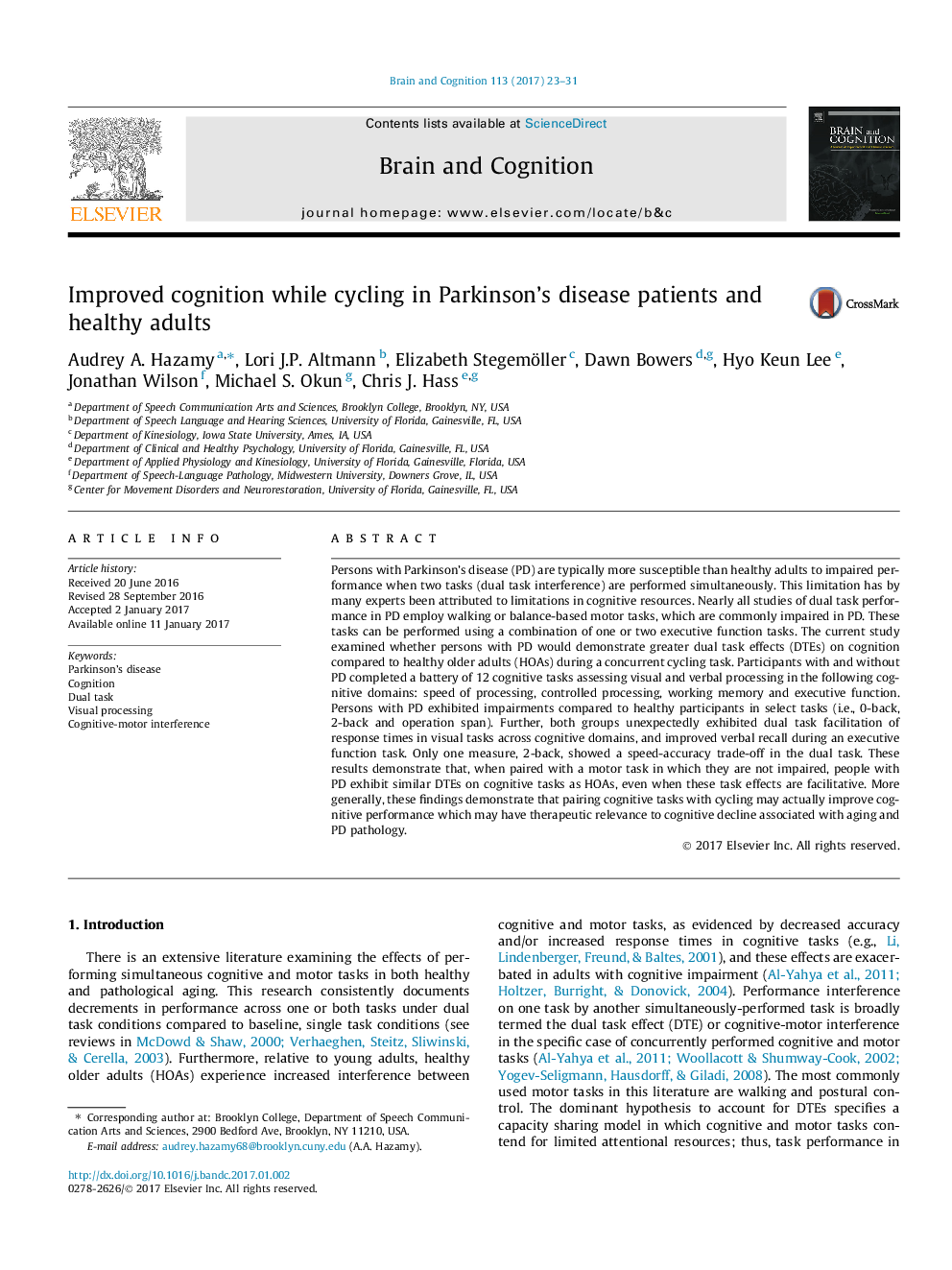| Article ID | Journal | Published Year | Pages | File Type |
|---|---|---|---|---|
| 5041140 | Brain and Cognition | 2017 | 9 Pages |
â¢Dual task effects on cognition may be facilitative during concurrent cycling.â¢Persons with Parkinson's disease exhibit similar dual-task benefits as controls.â¢Facilitation arises in response times in visual tasks across cognitive domains.â¢Results suggest a mechanism other than described in the acute exercise literature.
Persons with Parkinson's disease (PD) are typically more susceptible than healthy adults to impaired performance when two tasks (dual task interference) are performed simultaneously. This limitation has by many experts been attributed to limitations in cognitive resources. Nearly all studies of dual task performance in PD employ walking or balance-based motor tasks, which are commonly impaired in PD. These tasks can be performed using a combination of one or two executive function tasks. The current study examined whether persons with PD would demonstrate greater dual task effects (DTEs) on cognition compared to healthy older adults (HOAs) during a concurrent cycling task. Participants with and without PD completed a battery of 12 cognitive tasks assessing visual and verbal processing in the following cognitive domains: speed of processing, controlled processing, working memory and executive function. Persons with PD exhibited impairments compared to healthy participants in select tasks (i.e., 0-back, 2-back and operation span). Further, both groups unexpectedly exhibited dual task facilitation of response times in visual tasks across cognitive domains, and improved verbal recall during an executive function task. Only one measure, 2-back, showed a speed-accuracy trade-off in the dual task. These results demonstrate that, when paired with a motor task in which they are not impaired, people with PD exhibit similar DTEs on cognitive tasks as HOAs, even when these task effects are facilitative. More generally, these findings demonstrate that pairing cognitive tasks with cycling may actually improve cognitive performance which may have therapeutic relevance to cognitive decline associated with aging and PD pathology.
